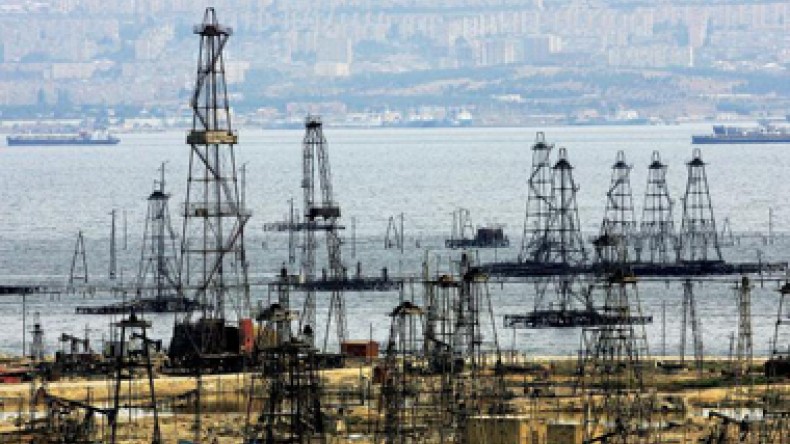
Stratfor: Azerbaijan faces financial and political crises
Azerbaijan is trying to weather two separate but interrelated crises. Baku is trying to take advantage of its increasing attractiveness as an alternative energy source to the Europeans meanwhile the large-scale drop in global oil prices and the standoff between Russia and the West over Ukraine. However, Baku will still come under financial and political constraints in its decision-making on the energy projects it pursues and the diplomatic maneuvering this will entail, the analytical article of the organisation “Stratfor” reads.
“Azerbaijan's economy is highly dependent on the country's energy industry, with the hydrocarbons sector accounting for roughly 40 percent of GDP and more than 90 percent of exports. The dramatic fall in global oil prices, as well as a slight decrease in the country's oil production because of maintenance works on the Azeri-Chirag-Guneshli oil field, contributed to a significant slowdown in 2014. Azerbaijan's GDP grew by only 2.8 percent compared to 5.8 percent in 2013,” the article reports.
According to the article, The central bank of Azerbaijan abandoned the currency peg of the manat to the dollar and switched to a dual-currency basket of dollars and euros on February 16. The manat had been pegged to the dollar at just more than 0.78 manat per dollar since the middle of 2011. However, the central bank had spent more than $2 billion defending the currency since December. As of February 19, the manat has been devaluated by 0.16 percent to the dollar.
Azerbaijan plans the Southern Corridor route — designed to avoid Russia and transit Caspian-region energy supplies via Georgia and Turkey to Europe. Europe has also been pushing to expand Azerbaijan's participation via the Trans-Caspian pipeline, which would link Turkmenistan to Azerbaijan over the Caspian Sea. Because all of Azerbaijan's upcoming natural gas supplies are already accounted for in the Trans-Adriatic pipeline, the European Union has looked to Turkmenistan, which produces nearly 80 bcm of natural gas per year and has up to 30 bcm of natural gas available for export. However, the Trans-Caspian pipeline has long been hindered by legal issues over maritime demarcation in the Caspian Sea and opposed by both Russia and Iran. Turkmenistan has been cautious in challenging Russia though the Ukraine crisis and Russia's decreased ability to import natural gas from Turkmenistan has caused Ashgabat to reassess its position, the article reads.
“The standoff between Russia and the West presents significant opportunities for Azerbaijan in energy, but not without political risks. The Trans-Caspian pipeline will take significant will from both the Europeans and Turkmenistan to challenge Russia, something they have not been able to do in the past despite years of discussions. Even the Trans-Adriatic pipeline, which is scheduled to start construction this year, has faced complications,” the article reads, pointing out that the Greek government led by the Syriza party has attempted to change the terms of the contract to receive lower prices and higher transit fees while Azerbaijan's energy firm State Oil Company has so far rejected these requests.
It’s also stressed in the article that Azerbaijan will have to maneuver carefully between all of these projects, both in terms of their political sensitivity and commercial viability. Delays or changes to these projects cannot be ruled out in the context of low energy prices, as well. Moreover, Azerbaijan will still avoid a direct conflict with Russia.
It’s also highlighted that many countries in the former Soviet Union have seen increased demonstrations and opposition activity following the fall of Ukrainian President Viktor Yanukovich, and Azerbaijan has been no exception. There have been several protests organised by opposition groups in Baku demanding the release of political prisoners. Azerbaijan will continue to cope with multiple crises, but with risks, both financial and political.
Newsfeed
Videos






























